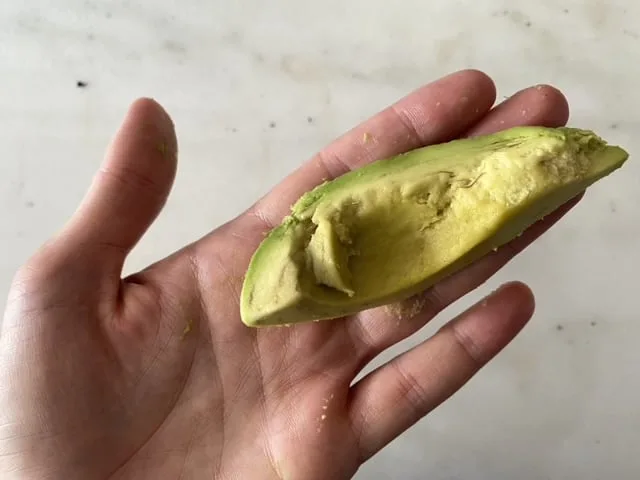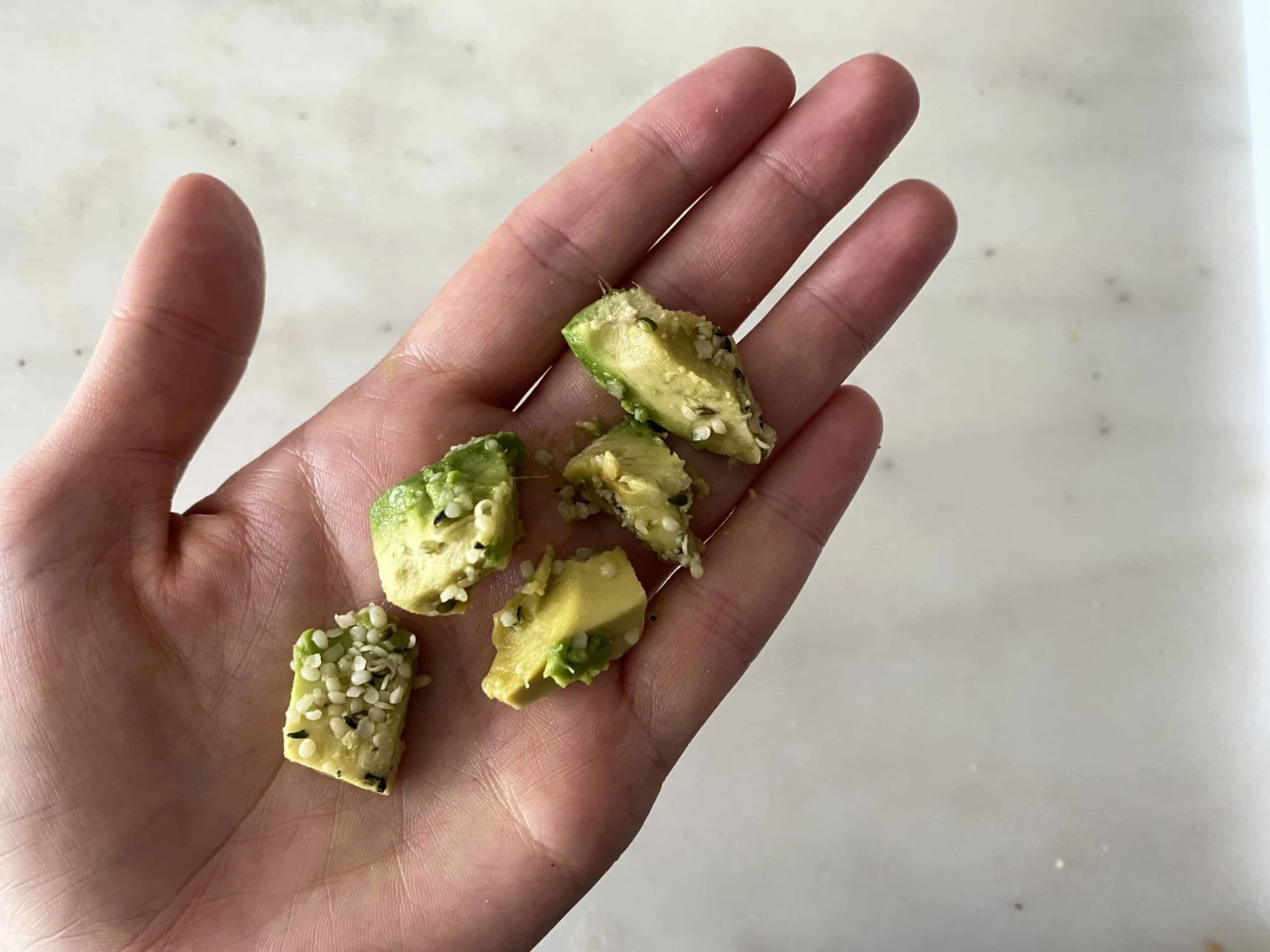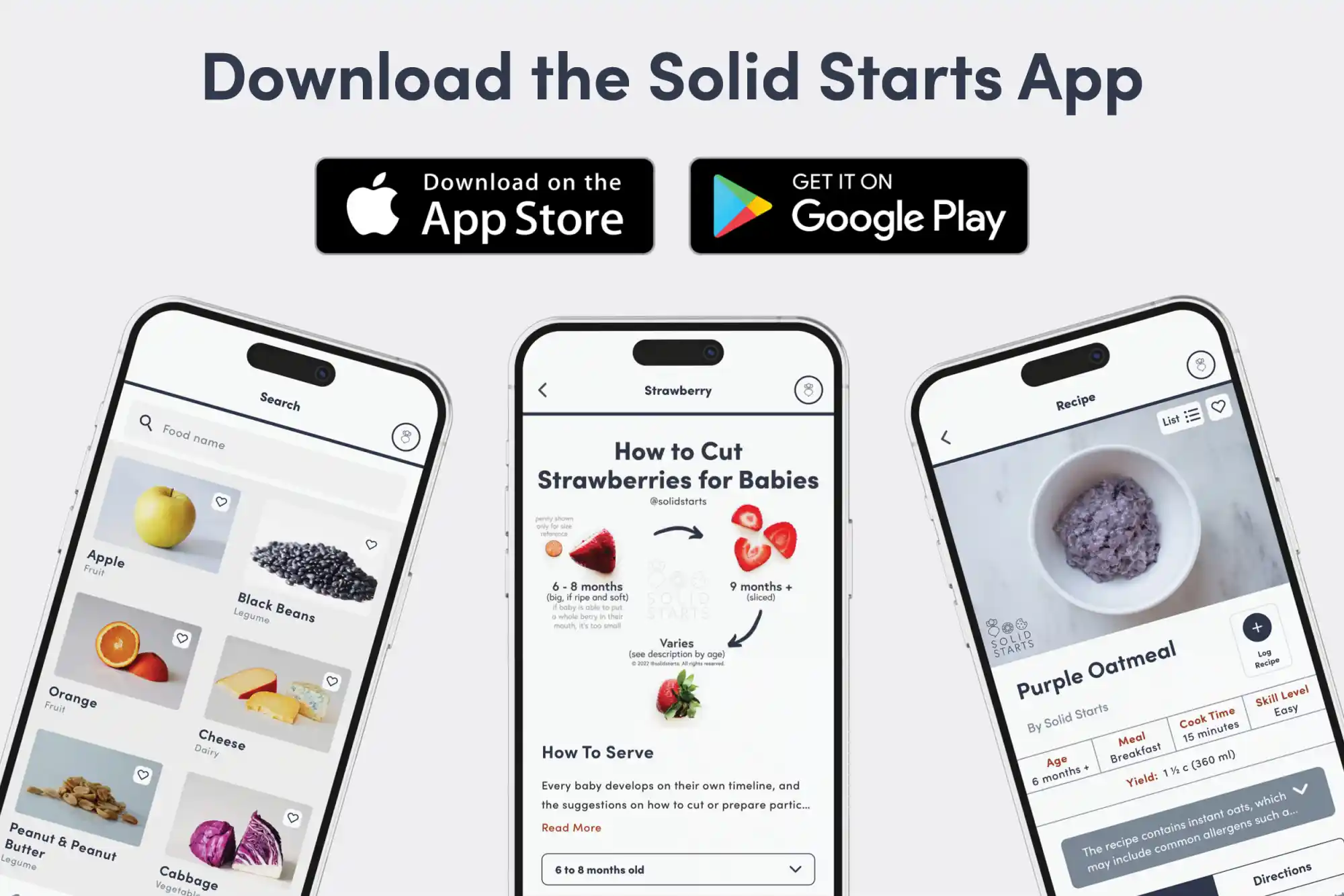Access our First Foods® Database in the Solid Starts App.
Learn moreAvocado
Fruit
Age Suggestion
6 months
Iron-Rich
No
Common Allergen
No

When can babies have avocado?
Avocado can be introduced as soon as baby is ready to start solids, which is generally around 6 months of age.
The avocado originated in Mesoamerica, where it was prepared and eaten by the Aztecs in a variety of forms, including the now-world-famous guacamole (originally called ahuaca-mulli). Colonizers brought the crop back to Europe with them, and it has since spread across the globe.
How do you serve avocado to babies?
Every baby develops on their own timeline, and the suggestions on how to cut or prepare particular foods are generalizations for a broad audience.
6 months old +:
Offer large halves or thick spears of ripe, soft avocado, with pit and skin removed. Alternatively, mash the avocado and serve on a pre-loaded spoon or spread on another food like toast strips. If the avocado spears are shooting out of baby’s hands because they’re slippery, roll them in a food that adds grip like hemp seeds or shredded coconut.
9 months old +:
At this age, the pincer grasp (where the thumb and pointer finger meet) is developing, enabling baby to pick up smaller pieces of food. As such, this is a great time to move down in size to small, bite-size pieces of avocado. If it is a struggle to pick up small pieces of food, it’s absolutely fine to continue to offer large spears of avocado or to continue with mashed avocado.
18 months old +:
Offer avocado in spears, bite-sized pieces, or mashed. At this age, you can also serve a ripe avocado half still in its skin, which offers a great texture for practice scooping with an age-appropriate utensil.


How to make avocado spears
Videos
Is avocado a choking hazard for babies?
No. Ripe, soft avocado presents a low risk when safely prepared for a child’s age and developmental ability, though, in theory, an individual could choke on any food. To reduce the risk, prepare and serve avocado in an age-appropriate way as described in the How to Serve section. As always, make sure you create a safe eating environment and stay within an arm’s reach of baby during meals.
Learn the signs of choking and gagging and more about choking first aid in our free guides, Infant Rescue and Toddler Rescue.
Is avocado a common allergen?
No. Allergies to avocado are rare but have been reported. Avocado allergy is more likely to occur in individuals who are already allergic to banana, chestnut, or kiwi. Those who are allergic to latex or certain pollens may be allergic to avocado or experience Oral Allergy Syndrome (also known as pollen food allergy). Oral Allergy Syndrome typically results in short-lived itching or burning in the mouth and is unlikely to result in a dangerous reaction.
Avocado is a possible trigger for food protein-induced enterocolitis, also known as FPIES. There is emerging evidence that the prevalence of avocado as a trigger for FPIES is higher than originally believed. FPIES is a delayed allergy to food protein which causes the sudden onset of repetitive vomiting and diarrhea to begin a few hours after ingestion.
As you would when introducing any new food, start with a small amount at first and follow baby’s lead.
Is avocado healthy for babies?
Yes. Avocado is rich in fiber and the healthy fats that babies need to support digestion and brain development. Avocados are also a rich source of growth-supportive B-vitamins like folate and B6, and contain vitamin E as well as zinc to fuel immune health. The healthy fats in avocado also make it a good oil option, though occasional use may be preferred because it tends to be expensive.
What are the signs of readiness for solids?
Baby should be able to sit with minimal support, hold their head up well, and be able to reach and grab an item and successfully bring it to their mouth while seated. Baby should also show interest in eating and watching caregivers eat. For example of babies who are ready vs not, see our article on readiness.
What are some great first foods for babies?
There are many wonderful options. Look for foods that are easy for baby to feed to themselves, that are low in choking risk, and that offer nutrients babies need, such as iron. A few of our favorite first foods include cooked broccoli, oatmeal, and mango pits.
Our Team
Written by
Expert Tips Delivered to Your Inbox
Sign up for weekly tips, recipes and more!
Copyright © 2026 • Solid Starts Inc










